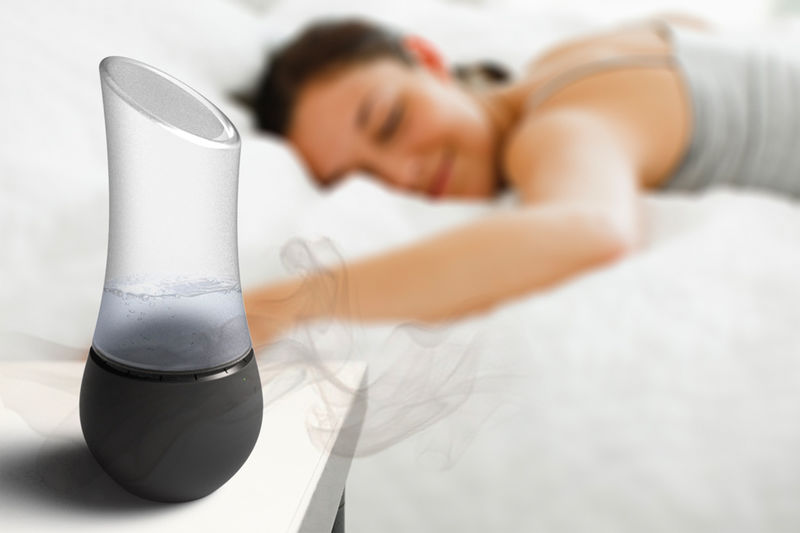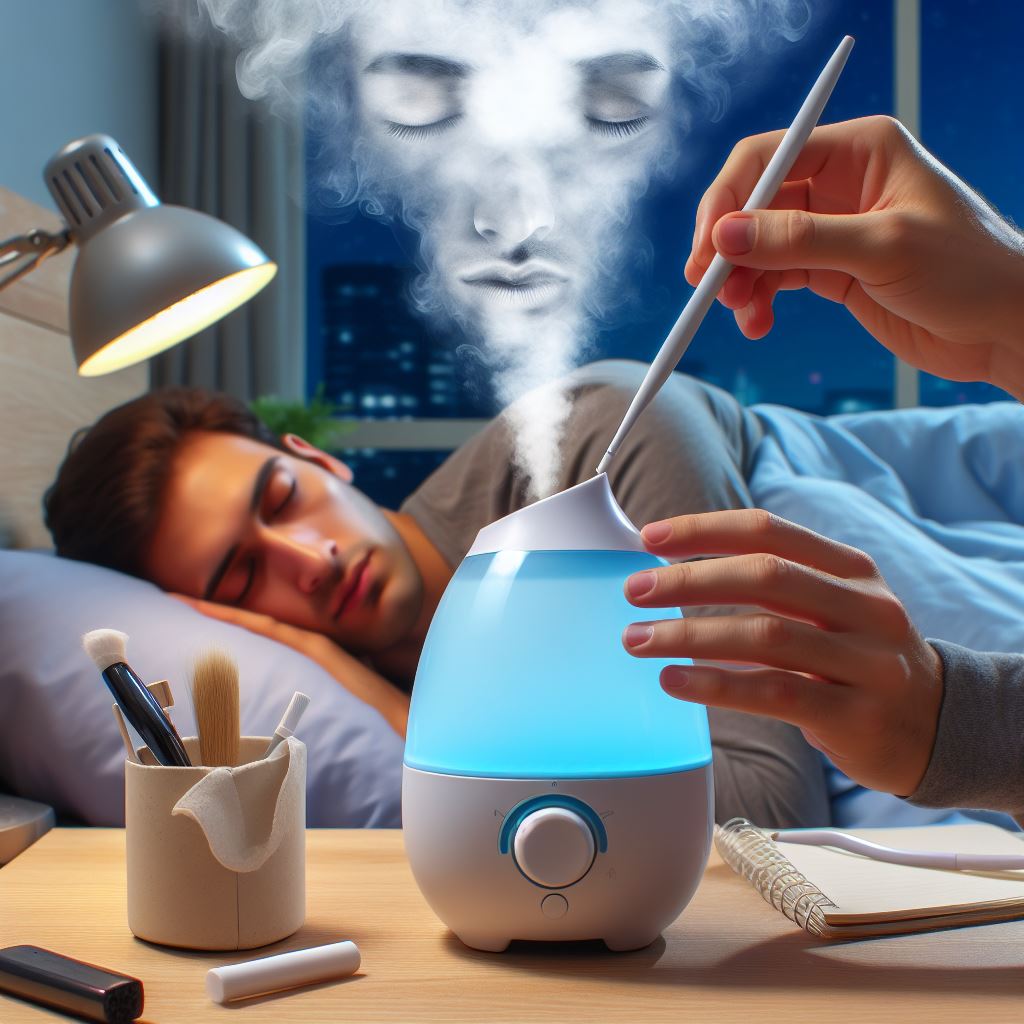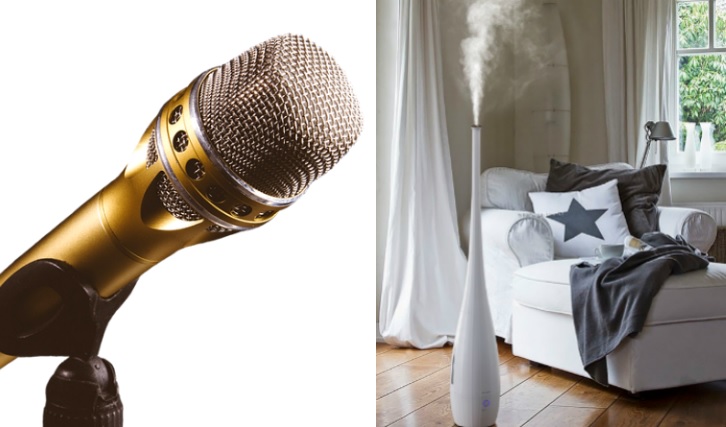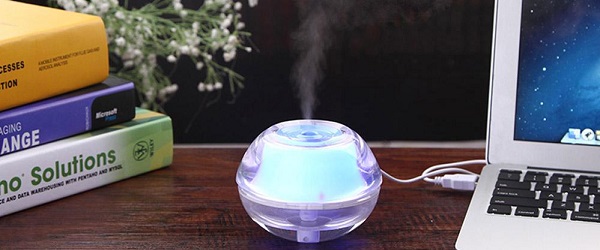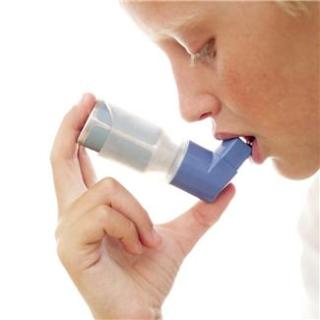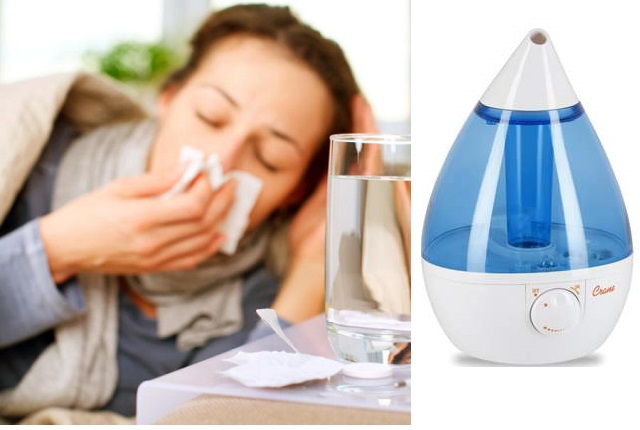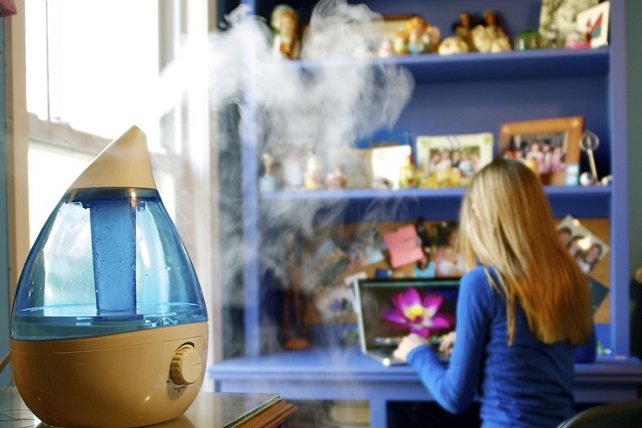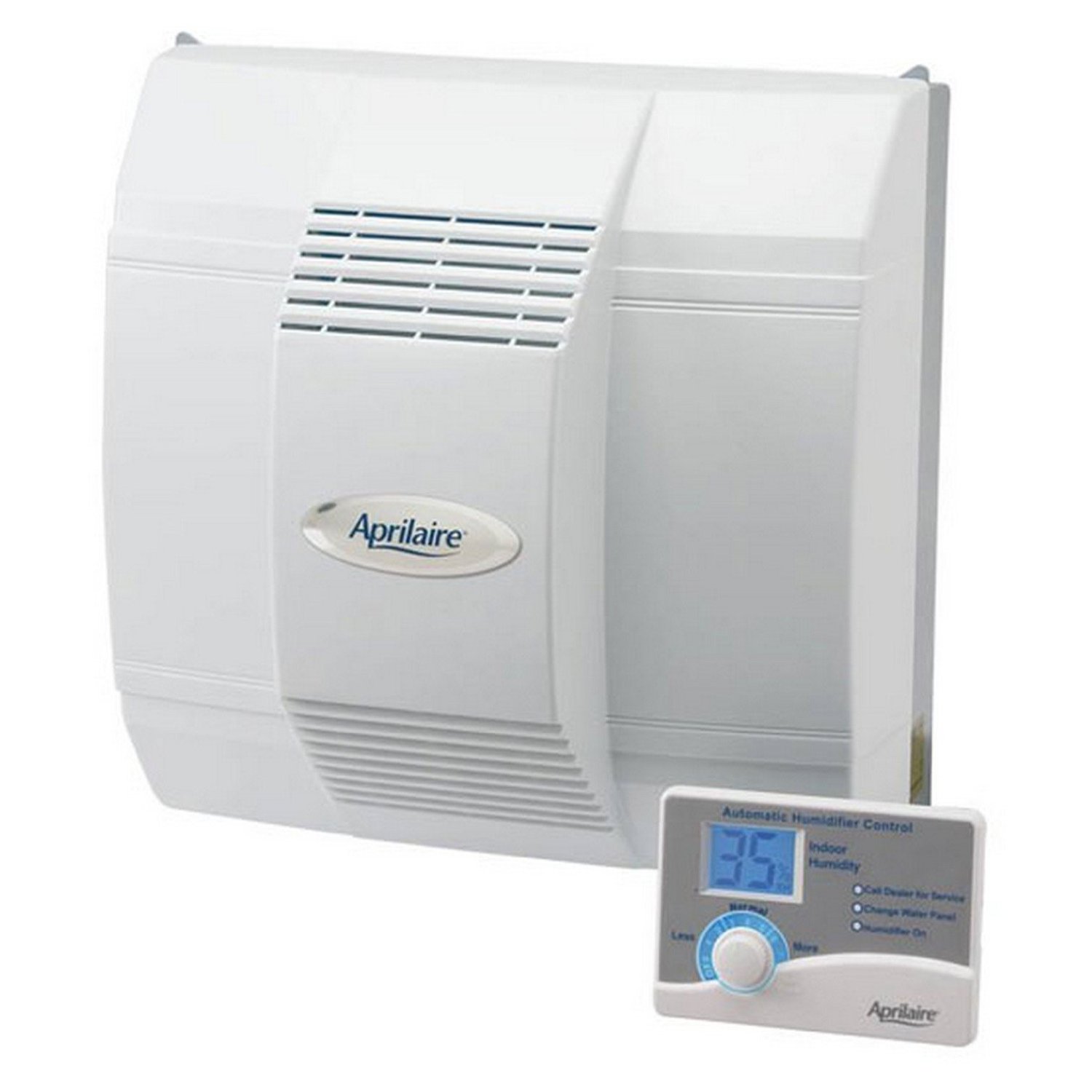Sleep Apnea Relief: Can Humidifiers Help You Breathe Better?
Sleep apnea can be a real nightmare, leaving you gasping for air and disrupting a good night’s rest. I’ve often wondered if there’s a simple solution to improve this condition and enhance sleep quality. Enter humidifiers—could these devices be the unsung heroes in the battle against sleep apnea?
I’m diving into the connection between humidified air and sleep apnea relief. You’ll discover how a humidifier might just be the key to unlocking peaceful slumber. Stay tuned as I explore the potential benefits and offer insights on whether adding a humidifier to your bedroom can make a difference in your sleep apnea journey.
The Connection between Humidified Air and Sleep Apnea Relief
As we delve deeper into how a humidifier can be a game-changer for those suffering from sleep apnea, it’s important to understand the role that air moisture plays in respiratory health. Air that’s too dry can irritate the airways, leading to inflammation which may exacerbate sleep apnea symptoms. In contrast, humidified air has been shown to soothe the airways, potentially reducing the number of apneas experienced during sleep.
The principle behind this is relatively straightforward. When the air is humidified, it becomes warmer and more saturated with moisture, easing the passage of air through the respiratory tract. This can help in:
- Minimizing snoring which is often a symptom of obstructed breathing
- Reducing congestion by loosening mucus
- Preventing the drying out of throat and nasal passages
Moreover, a study published in the Journal of Laryngology & Otology suggests that humidified air can improve the function of the cilia in the nasal passages, which are essential for filtering out particulates that could lead to airway irritation. This filtration is crucial for individuals with sleep apnea, as they are more prone to blocked airways.
However, it is vital to maintain the humidifier properly to avoid the growth of mold and bacteria, which could cause respiratory issues rather than help them. The ideal indoor humidity levels should range between 30% to 50%, to ensure enough moisture in the air without contributing to harmful microbial growth.
While the use of a humidifier presents a compelling argument for potential sleep apnea relief, one should not neglect the importance of integrating it with other doctor-recommended treatments. Continuous Positive Airway Pressure (CPAP) machines are commonly prescribed for sleep apnea, and when used in conjunction with a humidifier, may offer enhanced comfort and effectiveness.
How Sleep Apnea Affects Your Sleep Quality
Sleep apnea is more than just loud snoring – it’s a serious sleep disorder that truly impacts the quality of your zzz’s. When we talk about sleep quality, I’m referring to those restful hours that recharge your body and mind. But with sleep apnea, this crucial downtime becomes anything but restorative.
Here’s the deal: when you have sleep apnea, your breathing repeatedly stops and starts as you sleep. This isn’t just disruptive; it’s like throwing a wrench into your body’s natural sleep rhythm, also known as your sleep architecture. Typically, you cycle through various stages of sleep, and each one has its benefits. But with sleep apnea, these cycles are constantly interrupted, leading to a fragmented sleep pattern that robs you of deep, restorative sleep.
The consequences? While your body craves that deep REM sleep, sleep apnea keeps you in the lighter stages. This matters because REM sleep is where critical memory consolidation and cognitive functions occur. Imagine trying to learn a new skill or recall important information without the brainpower you need – that’s what poor sleep quality does to you.
Another way sleep apnea shakes things up is by messing with your body’s oxygen levels. Every time your breathing stops, the oxygen level in your blood can plummet. Your brain doesn’t take kindly to these dips and sends panic signals that partially wake you up – often so briefly that you won’t even remember it in the morning. This pattern can repeat hundreds of times in one night, leading to severe daytime fatigue and a host of other health issues that stem from that ongoing lack of quality sleep.
| Impact of Sleep Apnea on Sleep Quality |
|---|
| Disruption of natural sleep cycles |
| Reduction in REM sleep |
| Decrease in blood oxygen levels |
| Daytime fatigue and cognitive decline |
Managing sleep apnea is pivotal not just to getting a good night’s sleep but to maintain your overall health. That’s why it’s important to consider therapies and lifestyle modifications that could make a significant difference. Integrating a humidifier, as mentioned earlier, may help, but it’s only a piece of the puzzle when it comes to tackling the disruption sleep apnea has on sleep quality.
Understanding the Role of Humidity in Sleep Apnea
When it comes to managing sleep apnea, many factors can influence the severity of symptoms. Humidity plays a more critical role than you might initially think. Dry air can aggravate the upper airways, making them more prone to collapsing during sleep, which is a primary concern for those with sleep apnea. Conversely, air that’s too moist can create a breeding ground for mold and allergens that may exacerbate respiratory conditions and hinder breathing quality.
Maintaining optimal humidity levels, typically between 30% and 50%, can aid in keeping the airways moist and reduce the irritation that dry air causes. This balance is crucial in helping to ensure a more uninterrupted and restful night’s sleep. Humidifiers, therefore, can be an excellent tool in achieving the ideal humidity for sleep apnea sufferers.
Here are key benefits that proper humidity levels can provide:
- Reducing snoring by keeping the throat from drying out
- Minimizing the likelihood of airway obstruction
- Enhancing comfort, which may lead to falling asleep faster and maintaining sleep
The type of humidifier you choose is also important. Cool-mist humidifiers are generally recommended for individuals with sleep apnea because they help maintain a comfortable temperature while adding moisture to the air. It’s essential, however, to keep humidifiers clean to prevent the growth of harmful bacteria that could be inhaled during sleep.
For those using continuous positive airway pressure (CPAP) machines, many modern devices come equipped with built-in humidifiers. These CPAP humidifiers can be adjusted according to your needs and often provide a more tailored approach to managing humidity levels while using your therapy.
Remember, while a humidifier can improve air quality and sleep comfort, it’s not a standalone fix for sleep apnea. It should be used in conjunction with other treatments prescribed by your healthcare provider. Keep track of how the changes in humidity affect your sleep, and consult with a sleep specialist to optimize your sleep apnea management plan.
Benefits of Using a Humidifier for Sleep Apnea
When living with sleep apnea, managing symptoms effectively is key to getting the rest I need. I’ve found that using a humidifier offers several benefits that directly impact my sleep quality. High on the list is the potential for reducing congestion. Increased humidity can soothe the mucous membranes in the nose and throat, which in turn can diminish the congestion that often exacerbates sleep apnea symptoms.
Controlled humidity levels also play a pivotal role in preventing the drying out of the airways. This is critical for me since dry air can lead to irritation and swelling, which can cause the airways to narrow and intensify sleep apnea episodes. A humidifier ensures that the air I breathe while asleep is moist, which allows the airways to remain open and less reactive.
For those of us who use CPAP machines, there’s an added layer of comfort when a humidifier is integrated into our therapy. Using humidified air can prevent dry mouth and nose, common side effects from CPAP usage. It’s undeniably more comfortable and can encourage consistent use of the machine. The inclusion of a built-in humidifier is a design feature I always look for in a CPAP machine. It’s a small but significant addition that eases my sleep apnea therapy.
Another point worth mentioning is the type of humidifier to select. Cool-mist humidifiers are often recommended, and I agree. They are less likely to contribute to the growth of mold and bacteria if maintained properly. However, ensuring the equipment is clean is paramount to receiving the full benefits and avoiding any potential health risks associated with improper use. As always, I aim to balance the humidity levels in my bedroom to avoid over-humidification, which can be just as detrimental as dry air.
In line with optimizing my sleep environment, I also consider the size and noise level of the humidifier. A small, quiet unit does not disrupt my sleep and is sufficient for the space. Smaller, quieter humidifiers add to the overall tranquility of the bedroom, ensuring my sleep is as peaceful as possible.
- Bullet points summarizing the benefits mentioned:
- Reduces congestion and airway irritation
- Prevents airway dryness and associated swelling
- Provides added comfort during CPAP use
- Promotes a tranquil sleep environment
Considerations for Choosing the Right Humidifier
When I’m on the hunt for the perfect humidifier to assist with sleep apnea, several factors are pivotal. Not all humidifiers are created equal, and what works for one person might not be the best fit for another. Here’s what I look for to ensure I’m making a well-informed decision.
Humidifier Size and Capacity: It’s essential to choose a humidifier that’s appropriately sized for the room. A small unit won’t be effective in a large room, while a too-large humidifier can lead to excessive moisture and potential mold growth. Units are often rated by the square footage they can cover, so I make sure to match the humidifier’s capacity with my room’s dimensions.
Type of Humidifier: The market offers several types, including cool-mist, warm-mist, and ultrasonic humidifiers. Cool-mist varieties tend to be preferable for easing sleep apnea symptoms as they are less likely to harbor bacteria and mold. Plus, if I’m using a CPAP machine, warm mist isn’t recommended because it can potentially conflict with the device’s functionality.
Noise Level: Since the goal is to improve sleep quality, I prioritize finding a unit that operates quietly. Some models come with a ‘silent’ or ‘sleep’ mode which is ideal for night use.
Ease of Cleaning: Regular cleaning is crucial to prevent the build-up of mold and bacteria. I look for humidifiers with removable tanks and parts that are easy to disassemble and clean.
Humidity Control: Over-humidification can be just as troublesome as air that’s too dry. A humidifier with a built-in hygrometer or one that can pair with a separate hygrometer is what I’d go for, as this allows me to monitor and maintain optimal humidity levels.
Additional Features: Some models come with extras such as automatic shut-off, essential oil trays, or UV light sanitization. While not strictly necessary, these features can enhance convenience and peace of mind.
Choosing the right humidifier is a step toward improving sleep and managing sleep apnea, and by weighing these factors, I’m able to find a unit that not only meets my needs but also contributes to a better night’s rest.
Conclusion
Choosing the right humidifier can make a significant difference in managing sleep apnea and enhancing sleep quality. I’ve learned that size matters and that cool-mist options are generally safer. A quiet, easy-to-clean unit with humidity control is essential for uninterrupted sleep. Features like automatic shut-off and UV sanitization offer added convenience and peace of mind. By keeping these tips in mind, you’re well on your way to a better night’s rest. Remember, a good humidifier isn’t just an accessory; it’s an investment in your health.

